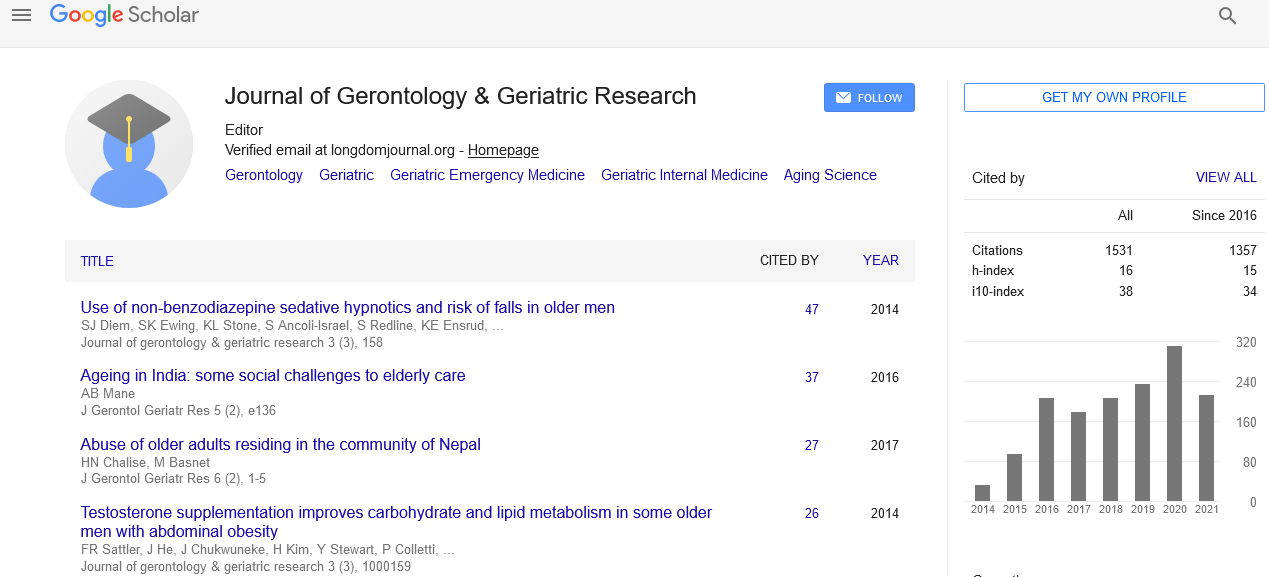PMC/PubMed Indexed Articles
Indexed In
- Open J Gate
- Genamics JournalSeek
- SafetyLit
- RefSeek
- Hamdard University
- EBSCO A-Z
- OCLC- WorldCat
- Publons
- Geneva Foundation for Medical Education and Research
- Euro Pub
- Google Scholar
Useful Links
Share This Page
Journal Flyer

Open Access Journals
- Agri and Aquaculture
- Biochemistry
- Bioinformatics & Systems Biology
- Business & Management
- Chemistry
- Clinical Sciences
- Engineering
- Food & Nutrition
- General Science
- Genetics & Molecular Biology
- Immunology & Microbiology
- Medical Sciences
- Neuroscience & Psychology
- Nursing & Health Care
- Pharmaceutical Sciences
Abstract
Fitness Assessment as an Anti-Aging Marker: A Narrative Review
Francisco J Amaro-Gahete, Alejandro De La O, Lucas Jurado-Fasoli, Manuel J Castillo and Angel Gutiérrez
Aging is a natural, physiological, and inevitable process, but it can be also influenced. Although aging is not a disease, it has several characteristics that could indicate so, such as a functional decline at different levels, which may determine clinical manifestations, and it is associated with several disease processes. Consequently, it is essential to create and adopt strategies to delay the aging process. Nowadays, any strategy adopted without including physical exercise seems inconceivable. Recent studies published in relation to this population have shown that the maintenance of acceptable levels of physical fitness is associated with the prevention of many of premature aging consequences, good rates of health, and quality of life of the person. cardiorespiratory fitness and muscular strength (as physical fitness components) are excellent life expectancy and quality of life predictors. Therefore, reaching a good fitness level is the most powerful clinical method to prevent and delay the aging process. Not only their years to live increase, but also their quality, with health and without diseases or mobility dependence.


